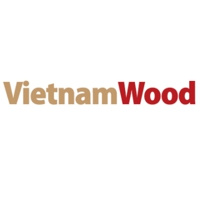- Read all
- Rice
- Fisheries
- Cassava
- Fertilizer & Pesticide
- Coffee
- Animal Feed
- Cocoa
- Seed
- Tea
- Wood
- Pepper
- Agricultural Cooperations
- Cashew
- Agricultural Investments
- Rubber
- Governmental Policies
- Sugarcane
- Agricultural Startup Ecosystem
- Corn
- Technological Innovations
- Spices
- Organic Agriculture
- Bean
- Food Manufacturing
- Fruit & Vegetable
- Agricultural Value Chain
- Flower
- Water & Waste Management
- Meat
- Processed Food
- Dairy
- Plant Originated Products
- General Agro Commodities
- Animal Originated Products
- Home
- News
News
Vietnam pledges to prevent illegal fishing
Vietnam pledges to step up collaboration efforts with the Southeast Asian Fisheries Development Centre (SEAFDEC)’s member nations in preventing and detering illegal, unreported, and unregulated (IUU) fishing, according to Deputy Minister of Agriculture and Rural Development Vu Van Tam. The deputy minister made the remark during the 48 th Meeting of the SEAFDEC Council which opened in Nha Trang city in the central coastal province of Khanh Hoa on April 4. At the event, Tam said Vietnam has closely collaborated with regional countries in building a dialogue mechanism to exchange information and resolve issues relating to fishing activities in each other’s territorial waters, in a spirit of friendship and humanity.
US, Russia compete for investment opportunities in Vietnam
The US economic presence in Vietnam has been increasing steadily since the normalization of Vietnam-US relations since the 1990s. Russia, which was once the largest trade partner of Vietnam, has also returned. Russia Beyond The HeadLines, in an article published some days ago, quoted economists as saying that there are plenty of niches that Russia can find in the Vietnamese market, even though the US’s increased presence seems to make it more difficult for Russia and other countries to compete. Hoang Khu, a former technical specialist at Vietsovpetro, an oil and gas joint venture between Vietnam and Russia, said on the website that Russia remains Vietnam’s favorite partner in the fields of high technology, national defence and nuclear power.
Farmers urged to plant saline-resilient crops
Farmers in the Cuu Long (Mekong) Delta’s areas affected by saline intrusion have been urged to switch to other crops or breed shrimp or fish. Experts have said that farmers in these areas should gradually adapt to saline-water cultivation models. Professor Vo Tong Xuan, one of Viet Nam’s leading agriculture experts, said in coastal areas affected by saline intrusion, farmers should switch from growing only rice crops year-round and instead grow one rice crop in the rainy season and breed shrimp or fish in the dry season.
Chinese chicken imports in Vietnam declared illegal
The Veterinary Department has confirmed that all Chinese chickens imported into Vietnam are illegal and the authorities of Vietnam and China have not yet signed any agreement on the export and import of livestock and poultry products. An official from the Veterinary Department told Infonet said the transport of livestock and poultry products across the Vietnam-China border is still going on. Particularly, Chinese chicken for meat and 1-day-old breeding chicken are imported into Vietnam while Vietnam’s buffaloes, cows, pigs are exported.
Agri-minister apologizes for saying most foods in Vietnam are safe
Vietnam’s Minister of Agriculture and Rural Development Cao Duc Phat has had to extend a public apology for claiming that most foods in the country are safe and that consumers are to blame for being unaware of that so-called 'fact.' Phat told a lawmaking National Assembly meeting in Hanoi on April 1 that “most of our foods are safe, but the people do not know [of this], so they feel all foodstuffs are unsafe.” The statement immediately sparked outrage among both lawmakers and consumers in a country where food scandals are not uncommon.
Vietnamese teacher, students develop water desalination machine to battle historic drought
A physics teacher and his students at a high school in the Mekong Delta province of Ben Tre have developed a solar-powered water desalination machine to provide precious drinking water for the drought-stricken area. Physics teacher Truong Huu Dung and his students at Nguyen Dinh Chieu High School in Ben Tre City, the provincial capital, are in the final stage of creating a water desalination machine that costs around VND2 million (US$90) and could produce six liters of fresh water a day.
Smart farming a bright future for Vietnam
Ready-to-eat tomatoes, and lettuce, grown without soil, and consumed unwashed, are the future in Vietnam and people will soon have the chance to experience this form of ‘smart agriculture’. This year, this IT-based agricultural project will experiment on growing high-value-added vegetables including medium-sized tomatoes and low-potassium leaf lettuce that will be the source of clean, ready-to-eat food. The potassium content in this kind of lettuce is one-fifth as compared with lettuce grown in any ordinary way making it suitable for diabetics and people who are on a diet.
Rising Vietnam robusta premiums boost demand for exchange stocks
LONDON/HANOI - Vietnamese robusta coffee premiums look set to rise further due to a worsening drought in the world's top grower, boosting incentives to draw down ageing exchange certified stocks, traders said on Friday. The country's Central Highlands main coffee belt is facing the worst drought in 30 years, heaping pressure on its limited supply. Premiums of robusta grade 2, 5 percent black and broken, rose to $50-60 a tonne to ICE July futures this week, from premiums of $40-50 a tonne last week, due to tight supply, traders said.
Vietnam plans to replace rice with more profitable crops
Vietnam plans to gradually reduce rice production and switch to other more profitable crops, a plan that experts say makes sense since the country grows so much paddy and is a massive exporter of the unprofitable crop. The National Assembly’s Economic Committee recently agreed with the government’s proposal to reduce the area under paddy by 270,000 hectares to 3.76 million hectares by 2020. Another 400,000 ha of land in places where seawater is salinizes rivers during the dry season will be used for other crops, but could revert to growing paddy if required.
MacCoffee fined with VND200 million for unsafe coffee
The Vietnam Food Administration has imposed a VND200 million (VND9,033) fine on FES Vietnam Co., Ltd. (FES), the owner of the MacCoffee brand, as a punitive measure for supplying products violating food safety regulations, according to newswire VTC.
Two cups of coffee a day keep bowel cancer at bay
Washington: If you have a daily coffee habit, here is something to buzz about: A new study has found that those cups of joe cut the risk of bowel cancer. Researchers at the University of Southern California (USC) Norris Comprehensive Cancer Center of Keck Medicine of USC examined over 5,100 men and women who had been diagnosed with colorectal cancer within the past six months, along with an additional 4,000 men and women with no history of colorectal cancer to serve as a control group. “We found that drinking coffee is associated with lower risk of colorectal cancer, and the more coffee consumed, the lower the risk,” said senior author Stephen Gruber.
Vietnamese pepper, coffee growers struggling with drought
Farmers in the Central Highlands and southeastern provinces are grappling to find water for their pepper and coffee farms as there is no sign of drought abating. The Vietnam Pepper Association (VPA) confirmed that drought has wreaked havoc on pepper farms in many provinces in the Central Highlands and southeastern regions and on Phu Quoc Island off mainland Kien Giang Province. VPA did not provide an exact figure of the pepper acreage hit by the calamity but warned that the dry season has not peaked.
Vietnamese firms outgrow local market, bet on foreign lands
Vietnamese dairy firm TH has recently announced US$2.7 billion of investment into cow farms, a milk plant and distribution channels in Russia. Chairwoman Thai Huong said the market has great potential because Russia is facing a dairy shortage due to sanctions imposed by the EU for its military intervention in Ukraine. The company is expected to have a herd of 350,000 cows and build a plant with an annual capacity of 1.8 million tons of milk. Its made-in-Russia products are set to hit the market from the middle of 2017. TH is one of many fast growing Vietnamese firms that have sought new opportunities abroad
2,300ha of sugarcane damaged by salinization in Vietnam’s Mekong Delta
Prolonged salinization in the Mekong Delta region has heavily damaged sugarcane plantation areas in several provinces of southern Vietnam, local authorities have said. According to Ho Thanh Kiet, head of the Bureau of Agriculture and Rural Development of Cu Lao Dung District in Soc Trang Province, over 2,300ha of sugarcane plantation has sustained damage, accounting for over 30 percent of the total crop. Of those, he said, over 214ha have been completely destroyed (more than 70 percent) and 619ha severely damaged (from 50 to 70 percent).
Severe drought, salinization forecast to continue in April
Heat and severe saltwater intrusion look set to continue to dominate Vietnam’s weather conditions next month, given the current impact of El Niño. The prediction by Vietnam’s National Center for Hydro-Meteorological Forecasting (NCHMF) was quoted by Nguyen Dang Quang, deputy chief of the Medium and Long Term Meteorological Forecasting Division of NCHMF at El Niño Outlook Forum 2016 on Monday. Although the phenomenon is expected to gradually recede this fall, average temperatures in northern Vietnam will be 0.5-1.5 degrees Celsius higher than over the same period in previous years, Quang said at the forum, held by the Asian Disaster Preparedness Center (ADPC) and NCHMF.
Long term solution needed for Mekong drought
Việt Nam’s Mekong Delta is facing severe drought and critical inland salination at the same time. El Nino and the shortage of water to the delta due to dams built by countries in the upper Mekong mainstream are the main causes; however, Vietnamese water reserve policies are also part of the story. The Mekong River enters Việt Nam’s territory in two big tributes of the Tiá»n and Háºu rivers before it ends in the sea through nine estuaries. The delta has thousands of inland canals, and for centuries, it seemed hard to believe that the delta would face a water shortage.
Events See more

Vietnamplas 2022 - Vietnam International Plastic and Rubber Industry Exhibition
23-03-2023 - 26-11-2022 09:00 - 17:00
Saigon Exhibition and Convention Center (SECC) – 799 Nguyen Van Linh Boulevard, District 7, City. Ho Chi Minh.

GROWTECH EXPO - FLORAPLANTEXPO 2021
02 - 05-11-2022 09:00 - 17:00
Saigon Exhibition and Convention Center (SECC) – 799 Nguyen Van Linh Boulevard, District 7, City. Ho Chi Minh.

VTG 2022
18 - 25-10-2022 09:00 - 17:00
Saigon Exhibition and Convention Center (SECC) – 799 Nguyen Van Linh Boulevard, District 7, City. Ho Chi Minh.

VIETSTOCK 2022 - SPECIALISED EXHIBITION OF LIVESTOCK, FEED AND MEAT PROCESSING IN VIETNAM
12 - 14-10-2022 08:00 - 17:00
799 Nguyen Van Linh, Tan Phu Ward, Dist. 7, Hochiminh City, Vietnam

VTG 2022
21 - 27-09-2022 09:00 - 17:00
Saigon Exhibition and Convention Center (SECC) – 799 Nguyen Van Linh Boulevard, District 7, City. Ho Chi Minh.
.png)
VIETFISH 2022
22 - 26-08-2022 09:00 - 17:00
Saigon Exhibition and Convention Center (SECC) – 799 Nguyen Van Linh Boulevard, District 7, City. Ho Chi Minh.
Business Opportunities See more
-
BURANI INTERFOOD is looking for Buyers in Vietnam
Type:
November 22, 2021
-
BURANI INTERFOOD is looking for Buyers in Vietnam
Type: Wholesaling Meat
November 22, 2021
-
BURANI INTERFOOD is looking for Buyers in Vietnam
Type: Wholesaling Meat
November 22, 2021
-
BURANI INTERFOOD is looking for Buyers in Vietnam
Type: Wholesaling Meat
November 19, 2021
-
BURANI INTERFOOD is looking for Buyers in Vietnam
Type:
November 19, 2021
-
Indian purchaser looking for high quality cashew nut kernel from Vietnam
Type: Exporting Cashew
Mar 14, 2016
534
Limitless database of qualified and verified agricultural partners
124
Exclusive buy & sell leads on specific agricultural commodities
24
Agricultural events in Vietnam and Asia Pacific region
Stay informed!
Enter your email address below to receive updates each time we publishes new content
